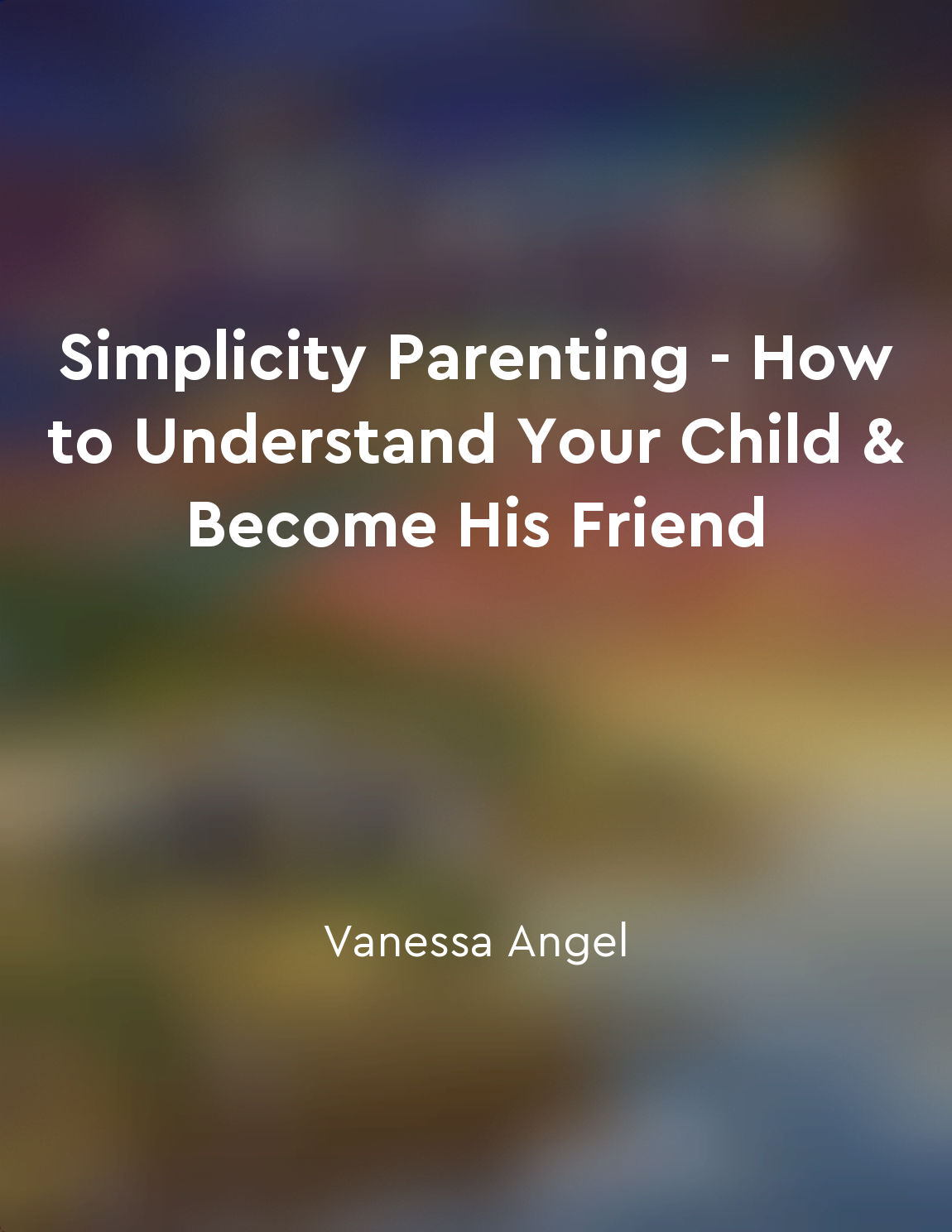Focus on solutions instead of punishments from "summary" of Love and Logic Magic for Early Childhood by Jim Fay,Charles Fay
When children misbehave, our first instinct is often to punish them. We may yell, threaten, or impose consequences in an attempt to teach them a lesson. However, focusing on punishments can be counterproductive and damaging to the parent-child relationship. Instead of getting caught up in a cycle of punishment and defiance, it is more effective to shift our mindset towards finding solutions. By focusing on solutions, we can teach children valuable problem-solving skills and help them learn from their mistakes. This approach encourages children to take ownership of their behavior and empowers them to make better choices in the future. When we involve children in the process of finding solutions, we show them that we value their input and trust them to come up with their own ideas. One key aspect of focusing on solutions is maintaining a calm and respectful demeanor. Instead of reacting impulsively to misbehavior, take a moment to collect your thoughts and respond in a composed manner. This not only models self-control for your child but also sets a positive tone for resolving the issue together. Another important aspect of this approach is setting clear and consistent boundaries. By establishing rules and expectations in advance, children know what is expected of them and are more likely to follow through. When they do break the rules, instead of resorting to punishment, guide them towards finding a solution that addresses the problem and prevents it from happening again. It is also important to remember that children are still learning and growing, and mistakes are a natural part of the process. By focusing on solutions instead of punishments, we create a supportive and nurturing environment where children feel safe to explore, make mistakes, and learn from them. This approach fosters a positive relationship built on trust, understanding, and mutual respect.Similar Posts
Stand up straight with your shoulders back
When you walk down the street, you should look around with your head up. This means you should put your shoulders back and keep...

Show love and affection regularly
To foster a strong and healthy relationship with your child, it is important to consistently demonstrate love and affection. Th...

Teach your child practical life skills
Teaching your child practical life skills is a crucial aspect of parenting. These skills go beyond academic knowledge and help ...
Building strong connections with others
The fundamental idea of building strong connections with others is at the heart of nurturing a Yes Brain. Our ability to form a...
Foster autonomy and selfdirection
The idea of fostering autonomy and self-direction in children is a crucial concept that lies at the heart of helping children d...
Prioritize teaching skills over punishment
The philosophy being advocated here can be summed up in a single sentence: kids do well if they can. This is not to suggest tha...

Children need discipline to feel secure
Children need discipline to feel secure. Discipline is not only necessary for a child's well-being, but it is also crucial for ...

Model respectful behavior
When you want your child to behave respectfully, the best way to teach them is by example. Children learn by watching the adult...
Avoid power struggles with your child
Power struggles are a common occurrence between parents and children, especially during the early years of a child's developmen...
